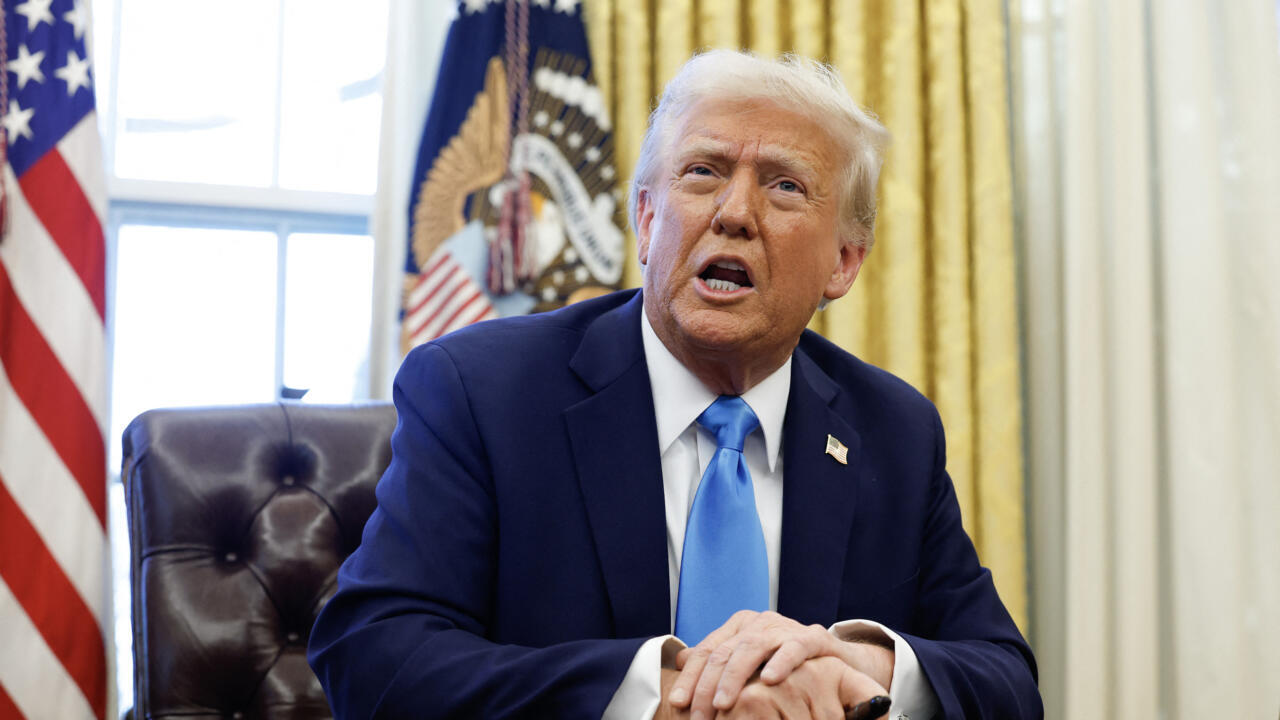Former President Donald Trump’s latest remarks are again drawing sharp criticism, this time for comments that could cross a legal line.
On Thursday, Trump hinted at using the IRS against organizations that don’t align with his political beliefs—something experts say is not just improper but possibly illegal under federal law.
During a press briefing in the Oval Office, Trump singled out a well-known watchdog group in Washington, D.C., called CREW (Citizens for Responsibility and Ethics in Washington).
He questioned whether they should even be considered a charitable organization, stating, “I have a group named CREW.
Have you ever heard of it? It’s supposed to be a charitable organization. The only charity they had is going after Donald Trump. So we’re looking into that, we’re looking into a lot of things.”
His comment came while speaking about how certain nonprofits and advocacy groups that oppose his MAGA-style policies, including on issues like immigration and climate change, should possibly face scrutiny regarding their tax-exempt status.
That statement triggered an alarm from legal experts. Aaron Reichlin-Melnick, a senior fellow at the American Immigration Council, responded strongly on social media.
He explained that if a sitting president or senior White House official tries to influence the IRS into auditing a specific individual or organization, it is a clear violation of federal law.
Reichlin-Melnick said, “It is a federal crime punishable by up to five years in prison for the President, VP, or any senior White House employee to ‘request, directly or indirectly, any officer or employee of the IRS to conduct … an audit or other investigation of any particular taxpayer.’” He also shared a screenshot of the law to back up his statement.
The law he’s referring to is designed to stop any misuse of the IRS for political gain. It ensures that taxpayer audits and investigations are kept separate from political influence, especially from those holding the highest positions in government.
Legal experts and watchdog organizations argue that Trump’s comments aren’t just rhetoric—they could be seen as a direct or indirect suggestion to weaponize a federal agency against his critics.
If that interpretation holds up legally, it could have serious consequences, even though Trump is no longer in office.

This isn’t the first time Trump has been accused of threatening to use government power to punish his enemies. Throughout his presidency, he regularly criticized and clashed with media outlets, nonprofit groups, and individuals who opposed him.
But this time, experts are emphasizing that there’s a clear legal boundary, and Trump may have crossed it in public view.
The organization he targeted—CREW—has been known for investigating Trump’s potential violations of ethics and financial disclosure laws.
They’ve filed multiple lawsuits against him in the past, including ones related to the Emoluments Clause, which restricts presidents from profiting from foreign governments.
By calling them out in the context of tax status and suggesting a review, Trump could be seen as applying pressure on the IRS to act based on political motives. That’s exactly the kind of interference that the federal law was written to prevent.
Critics say that even if Trump is no longer president, statements like these show how important it is to maintain the independence of government institutions.
They also argue that it highlights the dangers of allowing public officials to blur the lines between personal grievances and public power.
Trump has not responded to the criticism directly, but his pattern of making aggressive statements about his political enemies is nothing new.
As the 2024 election campaign builds momentum, his remarks are likely to keep raising both legal and ethical concerns.
Whether any formal action will be taken in response to his latest threat remains to be seen, but the issue has once again sparked debate about the limits of presidential power—and the accountability of those who attempt to stretch or ignore those limits.
Disclaimer- Our team has thoroughly fact-checked this article to ensure its accuracy and maintain its credibility. We are committed to providing honest and reliable content for our readers.






